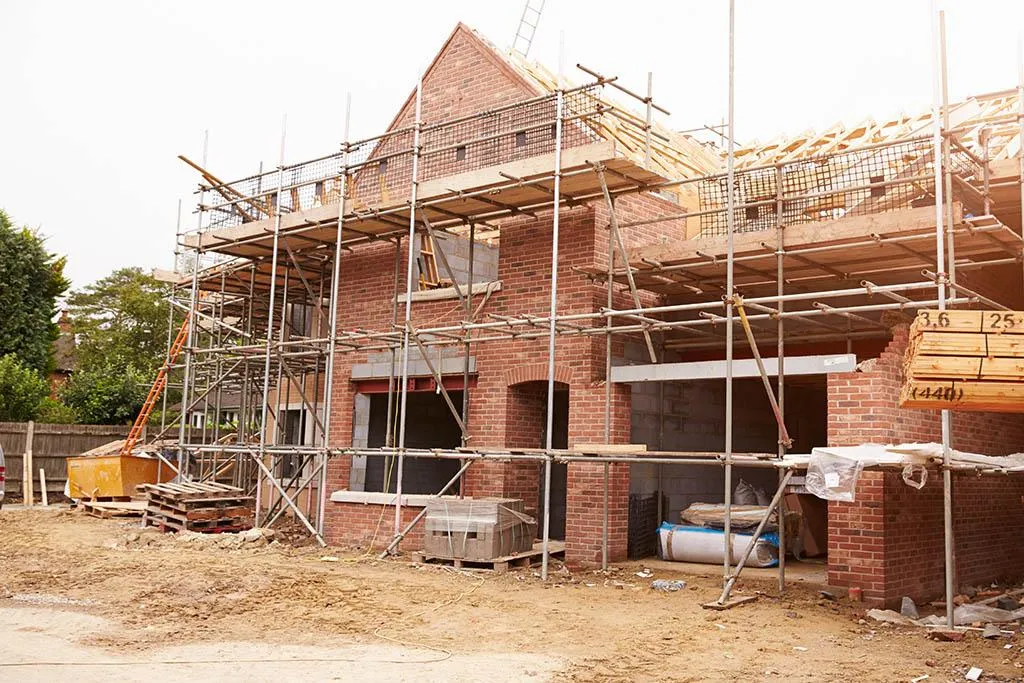
Top Residential Construction Trends in the UK for 2025
Top Residential Construction Trends in the UK for 2025
If you’re connected to UK construction or just curious about what’s shaping our neighborhood's next year, this blog is for you. Residential construction in the UK is evolving fast in 2025, driven by changing buyer demands, fresh design ideas, government support, and exciting investment areas.
I’m here to walk you through the biggest trends so you can stay informed, whether you’re building, investing, or simply keeping tabs on the market. Think of this as a friendly chat covering everything you need to know about UK residential construction in 2025.
Demand for New Homes: The Push to Meet Britain’s Housing Needs
The need for new homes in the UK remains urgent. With a population growing steadily and affordability pressures rising, housing targets are ambitious. The government has pledged £2 billion to build 18,000 affordable and social homes, focusing on quality and sustainability.
Despite some market uncertainty and rising costs, interest rate cuts in early 2025 are easingborrowing for developers and buyers alike. People continue to prefer houses over flats, thanks to desires for more space, gardens, and privacy, which guides what’s being built.
What This Means for Builders and Buyers:
Expect steady demand for family homes in suburbs and smaller cities.
Increased focus on energy-efficient homes to meet the Future Homes Standard.
Housing projects backed by government and local councils aiming to tackle affordability gaps.
Design Fads Shaping UK Residential Construction
2025 is the year of blending style with function in UK home design. Here’s what’s trending:
1. Minimalism with a Twist
Clean lines, neutral tones, and open spaces dominate, but with clever touches like statement doors and textured surfaces for visual appeal.
2. Natural Light and Biophilic Design
Big windows, skylights, and indoor plants create healthier, more inviting homes that connect occupants with nature - a priority post-pandemic.
3. Multi-Functional Spaces
With more people working from home, builders are incorporating versatile rooms that adapt from office to guest room or playroom with ease.
4. Sustainable Materials and Finishes
From reclaimed wood to low-VOC paints, eco-conscious choices are popular. Builders and buyers want homes that look good and tread lightly on the planet.
Alt text: "Modern UK family home with large windows and natural light showcasing residential construction trends"
Government Housing Initiatives Boosting Residential Builds
Several key policies are driving UK residential construction in 2025:
Future Homes Standard (2025): New builds must drastically reduce carbon emissions, movingaway from gas boilers and enhancing insulation.
Affordable Homes Programme: Focus on building social and affordable homes to alleviate the housing crisis.
Planning Reforms: Simplifying permission processes for brownfield sites and encouragingmixed-use developments.
These initiatives encourage builders to innovate with sustainability and efficiency at the core.
Investment Hotspots: Where the Action Is
Certain UK regions shine as hotbeds for residential construction investment:
Northwest England: Cities like Manchester and Liverpool benefit from urban regeneration and strong rental markets.
Midlands: Birmingham and Nottingham see growing demand due to transport links and affordability.
Southwest England: Bath and Bristol attract premium developments catering to families and professionals.
London Suburbs: Outer zones gain popularity for spacious housing with city access.
Investors and builders focus here, seeking high rental yields and capital growth from new developments.
Material and Technology Trends in Residential Builds
The materials and tech used in 2025 homes are more advanced than ever:
Aluminium and composite doors and windows are gaining market share for durability and thermal efficiency.
Smart home technologies like energy monitoring and automated controls offer convenienceand sustainability.
Modular and offsite construction methods accelerate delivery while reducing waste.
These trends ensure homes are future-ready - efficient, durable, and connected.
Challenges Facing UK Residential Construction in 2025
No trend report is complete without a dose of reality:
Labour shortages remain a hurdle, delaying project timelines.
Rising material costs challenge budgets and pricing.
Planning delays still frustrate developers despite reforms.
Economic uncertainty influences buyer confidence and investment decisions.
Yet, the sector’s resilience and innovation are reasons for cautious optimism.
Summary: UK Residential Construction in 2025 at a Glance
Government-backed schemes target affordable, sustainable housing.
Buyer preferences for houses, light, and flexibility shape designs.
Investment concentrates in fast-growing regional hubs.
Advanced materials and technologies improve thermal and smart features.
Challenges include workforce shortages, cost pressures, and planning bottlenecks.
Ready to stay ahead in UK construction?
Sign up for our mailing list to get monthly insights, market updates, and trend reports tailored for builders, developers, and investors in UK residential construction!
